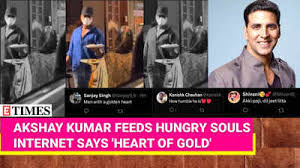
Table of Contents
Mukesh Khanna, a well-known Indian actor and television personality, recently sparked controversy by publicly criticizing Bollywood superstars Akshay Kumar, Ajay Devgn, and Shah Rukh Khan for endorsing pan masala products. His scathing remarks have ignited a debate about the ethical responsibilities of celebrities and the impact of their endorsements on public health.
### Background on the Issue
Pan masala, a chewable tobacco-based product, is highly popular in India but is also linked to severe health risks, including cancer. Despite being widely consumed, these products have long been criticized for their detrimental effects on health. The promotion of such products by well-known celebrities has been a contentious issue, given their influence on public behavior.
### Mukesh Khanna’s Outburst
Mukesh Khanna, famously known for his role as “Shaktimaan,” expressed his disappointment and anger over the involvement of prominent actors in promoting products that have potentially harmful effects. In a statement that resonated with many concerned citizens, Khanna said, “Inko pakad ke maarna chaahiye” (They should be caught and beaten). This blunt comment reflects his frustration with the ethical standards of these celebrities.
Khanna’s outburst highlights a critical issue in the world of endorsements, where the allure of lucrative contracts often overshadows moral responsibilities. His comments have put the spotlight on the growing trend of Bollywood actors endorsing pan masala and similar products, raising questions about the role of celebrities in shaping public opinion and behavior.
### The Influence of Celebrities
Celebrities wield enormous influence, particularly in a country like India, where film stars are often revered as idols. Their endorsements can significantly impact consumer behavior, especially among young people. When a popular actor promotes a product, it is often perceived as an endorsement of its safety and desirability, regardless of the product’s actual effects.
In the case of pan masala, this influence can be particularly harmful. Despite the known risks associated with these products, their consumption remains high, partly due to the glamorous image created by celebrity endorsements. The involvement of actors like Akshay Kumar, Ajay Devgn, and Shah Rukh Khan in promoting such products is seen by many as a betrayal of the trust placed in them by their fans.
### Ethical Considerations
The ethics of celebrity endorsements have been a topic of debate for years. While it is understood that actors, like any other professionals, have the right to earn a living, there is also an expectation that they should consider the broader impact of their actions. Promoting products that are known to be harmful, particularly when they have such a wide-reaching influence, raises serious ethical questions.
Mukesh Khanna’s criticism taps into this debate, questioning whether it is morally acceptable for celebrities to endorse products that can cause harm. His comments suggest that there should be accountability for those who choose to promote such products, especially when their influence can lead to widespread public health issues.
### The Legal Landscape
In recent years, there have been efforts by the Indian government to regulate the advertising of tobacco products, including pan masala. The Cigarettes and Other Tobacco Products Act (COTPA) prohibits the direct advertisement of tobacco products, but many companies have found ways to circumvent these restrictions by promoting non-tobacco variants under the same brand name. This practice has been criticized for its potential to mislead consumers and promote unhealthy behaviors indirectly.
The involvement of celebrities in such advertising only complicates the issue further. While the endorsements may not directly promote tobacco, the association of their names with these brands can have a similar effect. Mukesh Khanna’s remarks highlight the need for stricter regulations and greater accountability in the advertising industry.
Mukesh Khanna’s comments have garnered mixed reactions from the public and industry insiders. While many support his stance, agreeing that celebrities should refrain from promoting harmful products, others argue that actors should not be held responsible for the choices of their audience. The debate has also prompted discussions about the need for greater transparency in the endorsement deals made by celebrities.
Some have defended the actors in question, pointing out that they have the right to choose their endorsements and that the responsibility for regulating harmful products should lie with the government and regulatory bodies. Others, however, believe that with great influence comes great responsibility, and that celebrities should be more mindful of the impact their endorsements can have.
### The Role of Social Media
Social media has played a significant role in amplifying Mukesh Khanna’s criticism. Platforms like Twitter and Instagram have seen a surge of discussions on the topic, with many users expressing their views on the ethics of celebrity endorsements. The debate has also highlighted the power of social media in holding public figures accountable for their actions.
In the age of social media, celebrities are under constant scrutiny, and their actions can have immediate and far-reaching consequences. Mukesh Khanna’s comments have resonated with a large audience, and the ensuing debate is a reminder of the need for responsible behavior, particularly from those in positions of influence.
### Conclusion
Mukesh Khanna’s criticism of Akshay Kumar, Ajay Devgn, and Shah Rukh Khan for promoting pan masala products has sparked a crucial debate about the ethical responsibilities of celebrities. While endorsements are a legitimate way for actors to earn income, the potential harm caused by promoting products like pan masala cannot be ignored.
The discussion raises important questions about the role of celebrities in shaping public behavior and the need for greater accountability in the advertising industry. As the debate continues, it is clear that the influence of celebrities comes with significant responsibility, and that their choices can have profound impacts on public health and society at large.








